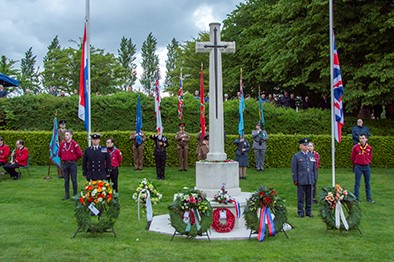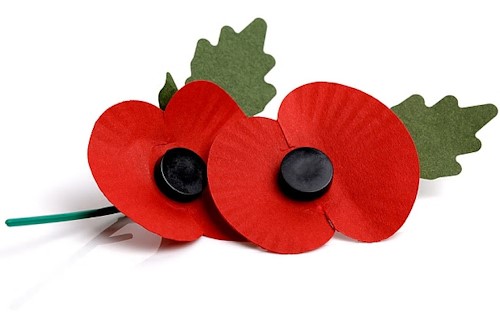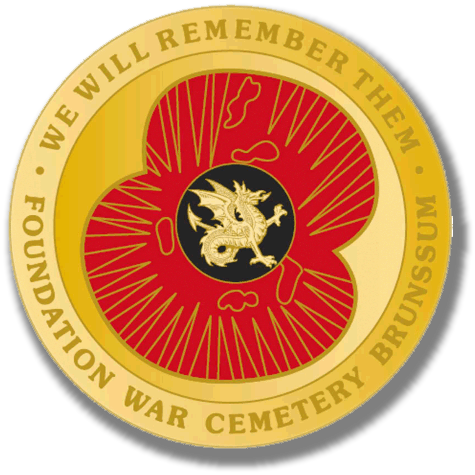Remembrance Day
Remembrance Day
November 11th (Remembrance Day – “Poppy Day”)
Remembrance Day In the United Kingdom and in Commonwealth countries, Remembrance Day is the day on which the fallen of the First World War and all wars and armed conflicts since then are commemorated.
The day is celebrated on November 11: the day the First World War ended in 1918. However, the actual solemn commemoration takes place on the Sunday closest to that date. That day is called Remembrance Sunday. On this Sunday, at 11:00 in the morning, two minutes of silence are observed throughout the country and wreaths are laid. The National Commemoration takes place at the Cenotaph at Whitehall in London. Wreaths are laid by the Royal Family, the government, representatives of the other political parties, and the Chiefs of Staff of the British Army, Air Force and Navy. The High Commissioners of the Commonwealth are also present. The official part is followed by a parade of war veterans. The wreaths traditionally consist of poppies made of plastic. Since 1922, the poppy has been the symbol of the veterans’ organization, the Royal British Legion. From that year on, after the so-called poppy appeal, this organization sells plastic poppies that are worn on the clothing, in memory of the fallen. The proceeds of the sale are used to support war victims or their relatives.
In Brunssum we celebrate this day on November 11th itself.
At 10:30 a.m. a memorial service will take place at our War Cemetery. Everyone is invited.


The POPPY, a message from the battlefield.
Many a war story mentions the phenomenon of a red sea of flowers arising in the summer on the overturned earth of the battlefields. The only thing that grew around the trenches of the ‘No Man’s Land’ in Belgium were the poppies, like drops of blood on the battlefield. It is sometimes said that in every poppy is a soul of a fallen soldier.
That is why they have become a symbol of the First World War and in the United Kingdom the annual day of remembrance is also called Poppy Day. (Usually the 2 nd weekend of November). In the lead-up to this day and the day itself, people wear a poppy in their lapels. With the sales of these poppies, the war victims and their families are financially supported.
The idea to make the poppy a symbol of the First World War came from the American poet and humanist Moina Michael (1869-1944). Inspired by the poem of John McCrae, she wrote the poem We Shall Keep the Faith the day before the end of the war in which she declared that from now on she would always wear a poppy to commemorate the victims of the war. Her symbolic act was replicated throughout the British Commonwealth. Moina Michael’s poem goes like this:
We Shall Keep the Faith
Oh! you who sleep in Flanders Fields,
Sleep sweet – to rise anew!
We caught the torch you threw
And holding high, we keep the Faith
With All who died.We cherish, too, the poppy red
That grows on fields where valor led;
It seems to signal to the skies
That blood of heroes never dies,
But lends a lustre to the red
Of the flower that blooms above the dead
In Flanders Fields.
And now the Torch and Poppy Red
We wear in honor of our dead.
Fear not that ye have died for naught;
We’ll teach the lesson that ye wrough In Flanders Fields.
